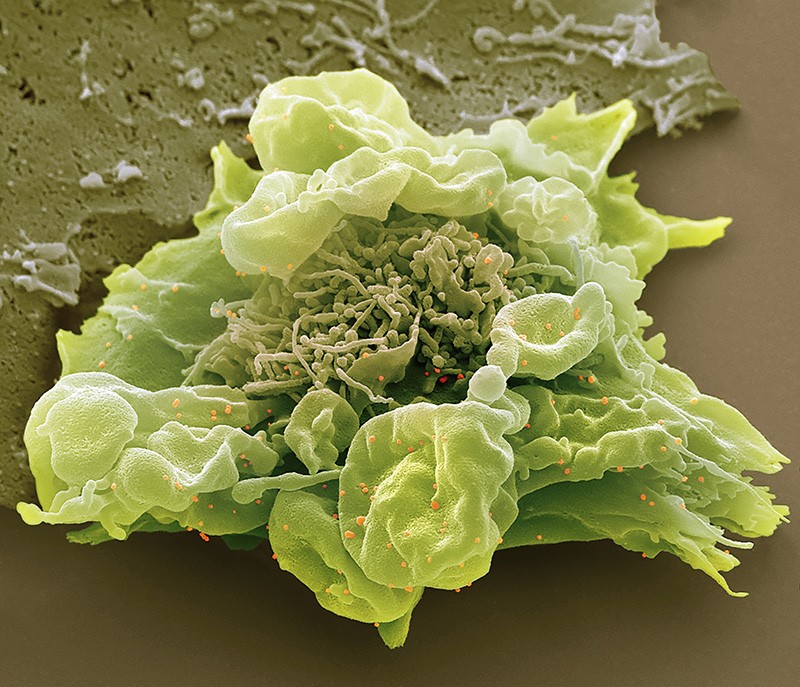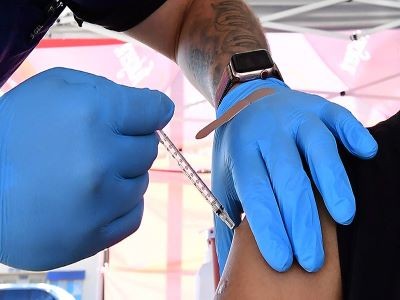Scientists have identified a host of genetic variants that are linked to an increased risk of developing severe COVID-191. These variants affect processes ranging from immune-system signalling to blood clotting, and understanding them could help researchers to target new therapies for people who are critically ill.
Together with other genetic studies, these results mean that “we have a more robust evidence base for understanding COVID than any other common disease in critical care”, says co-author Kenneth Baillie, an intensive-care physician and geneticist at the University of Edinburgh, UK.
Previous studies2,3 have pinpointed a number of genetic variants linked to severe COVID-19, defined by lung inflammation that leads to respiratory failure. To suss out more variants, Baillie and his co-authors analysed the genomes of nearly 7,500 people who had been treated for severe COVID-19 in UK intensive-care units. The researchers then compared these genomes with those of more than 48,000 people in the general population; the team’s data suggest that people in this group did not develop severe disease.
Some risk is in the genes
This comparison uncovered 16 variants that had not been linked to critical COVID-19, some of which double the risk of becoming critically ill. A few of the variants occur in less than 1% of people of European ancestry. But others are found in more than half of the European population. Together, these variants could explain why some people become seriously ill.
Baillie says that the functions of the genes implicated by the new analysis suggest two potential pathways for developing severe COVID-19. Five of the connected variants have roles in an immune-messaging system that relies on signalling molecules called interferons, which cells secrete in response to infection. This suggest that some people become critically ill after their immune systems initially fail to curb the virus’s reproduction.
The team also linked severe COVID-19 to genetic variants involved in blood clotting and mucus production. The variants in this category might predispose people to lung inflammation or clotting, meaning that even relatively low levels of the virus in the body could still lead to dangerous illness.
Understanding these pathways and the associated genes is “important” and provides “tons of potential targets” for therapies, says Brent Richards, a geneticist and endocrinologist at McGill University in Montreal, Canada.
Similar associations have already borne fruit. In 2020, Baillie and his colleagues cited a variant uncovered in their previous research3 to suggest that an enzyme-inhibiting drug called baricitinib could treat severe COVID-19. Results from a large clinical trial, posted this month on the preprint server medRxiv, now suggest that baricitinib lowers mortality rates4. That study has not yet been peer reviewed.
Lost in translation
But translating a genetic association into a treatment is not always easy. For instance, trials of drugs that target interferon signalling to treat people hospitalized with COVID-19 have so far been unsuccessful5,6. And although the latest work is the largest genomic study of severe COVID-19 so far, the sample size is probably still too small to capture other rare variants, says Andrea Ganna, a geneticist at the University of Helsinki.
All the same, Baillie is optimistic that the study will help to provide more pathways for treatment. “There is a very high chance that the many associations we’ve shown will lead to new effective therapies,” he says.
"severe" - Google News
March 11, 2022 at 05:52AM
https://ift.tt/eYuJLyB
Wide-ranging genetic study of severe COVID finds common risk factors - Nature.com
"severe" - Google News
https://ift.tt/BQM5Rom
Shoes Man Tutorial
Pos News Update
Meme Update
Korean Entertainment News
Japan News Update
Bagikan Berita Ini

















0 Response to "Wide-ranging genetic study of severe COVID finds common risk factors - Nature.com"
Post a Comment